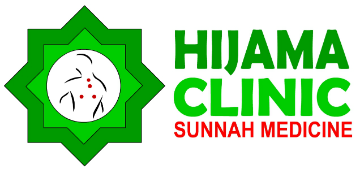The Sunnah in Hijama Therapy
- Men and women are allowed to have the treatments and it is recommended for all ages and all ailments.
- There are certain times that wet cupping can be practiced according to the Islamic, lunar calendar; it is recommended that wet cupping be practiced on the 17th, 19th and 21st days of the month.
- It is recommended that hijama be done about twice a year (when the seasons change from spring to winter) for a healthy person. It can be performed regularly for a very sick person (as frequent as every 2 weeks).
- It should be performed on an empty stomach.
- It is sunnah to perform Ghusl (ritual bathing) i.e.; take a shower before Hijama.
- It is sunnah to perform Wudhu (ritual ablution) before Hijama.
- Ruqyah can also be performed during Hijama.
On your first visit, you will be asked primarily about your chief complaint. Secondary issues will also be noted and addressed as treatment progresses.
Start noticing how you feel each day and make a few notes. With respect to your chief complaint, try to answer these questions:
• When did this condition first appear? Is this a new condition or a recurring illness?
• What brought it on? What triggers it?
• Is your condition getting worse?
• To what degree does it interfere with your daily routine, work or sleep?
• What aggravates it? What provides relief?
• What time of day does it bother you the most? the least?
On the day of the appointment
Bring your notes and a list of current medications.
Set aside enough time so that you are not rushing to and from your visit. Physical strain immediately before or after Hijama can weaken your body. Please schedule your activities on the day of your visit accordingly.
Wear loose, comfortable clothing.
Hijama points are located all over the body. Many of the Hijama points that are commonly used are located on the back, neck and head. Towels are used to cover the areas that do not need to be exposed, instructions will be given before starting treatment.
Women can do hijama, but need to be accompanied by a husband or a brother or older son. other support persons can come along as well. On many occasions both husband and wife come in to do hijama together.
Your comfort, warmth and ease is of utmost importance to us. We encourage you
to ask questions, express concerns, and provide feedback during any stage of your treatment.
Be on time for your appointment so that you may benefit fully. When you make an appointment, please understand that time has been reserved for you. There will be a charge for missed appointments without 24 hours notice.
